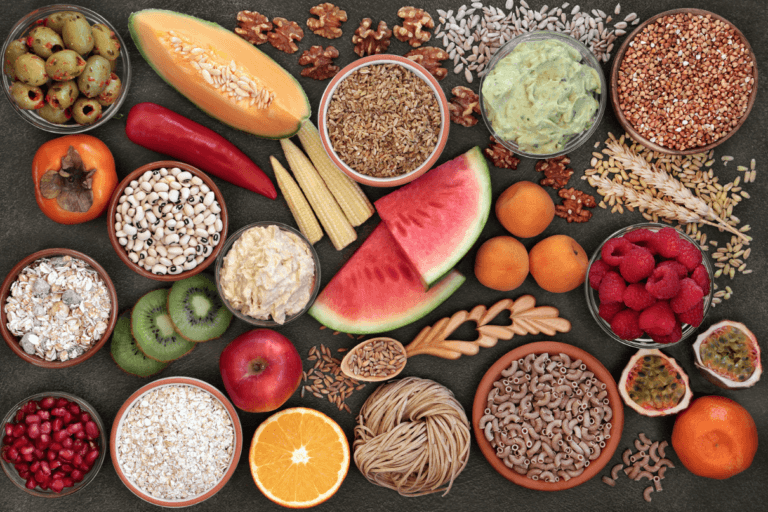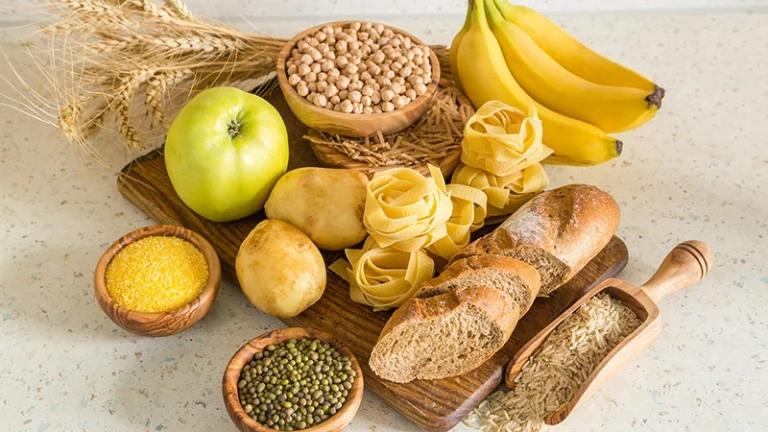Finding ways to reduce chronic inflammation has become increasingly important. Chronic inflammation can contribute to a range of health issues, from joint pain and weight gain to more serious conditions like heart disease and Alzheimer’s.
The good news is that we have the power to combat inflammation through our dietary choices. By following a low-inflammatory diet, we can introduce foods that have anti-inflammatory properties while avoiding those that contribute to inflammation. In this article, we will explore the benefits of a low-inflammatory diet and how it can improve our overall health.
Understanding inflammation and its impact on health
Before diving into the benefits of an anti-inflammatory diet, it’s important to understand what inflammation is and how it affects our bodies. Inflammation is a natural response of the immune system to protect the body from harm, such as infections or injuries. It involves the release of chemicals and immune cells to the affected area, causing redness, swelling, heat, and pain.
While acute inflammation is a necessary and beneficial process, chronic inflammation can be detrimental to our health. Prolonged inflammation can damage healthy tissues and organs, leading to a range of chronic conditions, including cardiovascular disease, metabolic syndrome, type 2 diabetes, arthritis, and even certain types of cancer.
The role of diet in inflammation
Healthy eating plays a significant role in inflammation. Certain foods can either promote or reduce inflammation in the body. An unhealthy diet high in processed foods, refined carbohydrates, sugary beverages, and unhealthy fats can trigger an inflammatory response and contribute to chronic inflammation over time.
On the other hand, a low-inflammatory healthy diet focuses on consuming foods that have anti-inflammatory properties. These foods are typically rich in nutrients, antioxidants, and healthy fats, which help reduce inflammation and support overall health.
The anti-inflammatory foods to include in your diet
When following a low-inflammatory diet, it’s essential to incorporate foods that have been shown to have anti-inflammatory properties. These foods can help reduce inflammation and promote overall health. Here are some key anti-inflammatory foods to include in your diet:
1. Fruits and vegetables
Fruits and vegetables are rich in vitamins, minerals, fiber, and antioxidants, all of which contribute to their anti-inflammatory properties. Fiber lowers C-reactive protein (CRP), a substance in the blood that indicates inflammation. Berries, especially blueberries, are packed with antioxidants called flavonoids, which have been shown to fight inflammation and reduce the risk of chronic diseases. Dark leafy greens like spinach, kale, collards and chard contain antioxidants, polyphenols and phytonutrients, all of which are important for managing inflammation. Other colorful fruits and vegetables, such as tomatoes, and bell peppers, are also excellent choices for their anti-inflammatory benefits.
2. Fatty fish
Fatty fish, such as salmon, mackerel, sardines, and trout, are abundant sources of omega-3 fatty acids. Omega-3s have potent anti-inflammatory effects and can help reduce the production of inflammatory molecules in the body. Including fatty fish in your diet a few times a week can provide you with these beneficial omega-3s.
3. Nuts and seeds
Nuts and seeds, such as almonds, walnuts, chia seeds, and flaxseeds, are packed with nutrients and healthy fats. They also contain antioxidants and have been associated with reduced markers of inflammation. Adding a handful of nuts or seeds to your daily diet can be a simple and delicious way to incorporate anti-inflammatory foods.
4. Whole grains
Whole grains, such as quinoa, brown rice, oats, and whole wheat, are unrefined and retain their natural fiber and nutrients. They have a lower glycemic index compared to refined grains, meaning they cause a slower rise in blood sugar levels. High blood sugar levels can trigger inflammation, so opting for whole grains can help reduce inflammation and provide long-lasting energy.
5. Healthy fats
Healthy fats, such as those found in olive oil, avocados, and nuts, are essential components of a low inflammatory diet. These fats contain monounsaturated and polyunsaturated fats, which have been shown to have anti-inflammatory effects. They can help reduce inflammation and support heart health.
6. Spices and herbs
Many spices and herbs have potent anti-inflammatory properties. Turmeric, for example, contains a compound called curcumin, which has been extensively studied for its anti-inflammatory effects. Other spices like ginger, cinnamon, and garlic also have anti-inflammatory benefits. Adding these spices and herbs to your meals can not only enhance the taste but also provide anti-inflammatory benefits.
7. Green tea
Green tea is rich in antioxidants called catechins, which have been shown to have anti-inflammatory properties. Regular consumption of green tea has been associated with a reduced risk of chronic conditions, including heart disease and certain types of cancer. Enjoying a cup or two of green tea per day can be a simple and beneficial addition to your low-inflammatory diet.
The inflammatory foods to avoid
Just like certain foods can lower inflammation, other foods can increase it. These foods are typically high in unhealthy fats, refined carbohydrates, added sugars, and artificial ingredients. Here are some examples of inflammatory foods to avoid:
1. Processed foods
Processed foods, including fast food, packaged snacks, and processed meats like hot dogs, are often high in unhealthy fats, refined carbohydrates, and added sugars. These ingredients can trigger inflammation and contribute to chronic conditions. Opting for whole, unprocessed food is a key aspect of a low-inflammatory diet.
2. Refined carbohydrates
Refined carbohydrates, such as white bread, white rice, and sugary cereals, have been stripped of fiber and nutrients. They cause a rapid spike in blood sugar levels, leading to inflammation and an increased risk of chronic diseases. Choosing whole grains instead of refined grains can help reduce inflammation and support overall health.
3. Sugary beverages
Sugar-sweetened beverages, such as soda, energy drinks, and sweetened fruit juices, are high in added sugars and provide little to no nutritional value. Regular consumption of these beverages has been linked to increased inflammation and a higher risk of chronic diseases. Opting for water, herbal tea, or unsweetened beverages is a healthier choice for reducing inflammation.
4. Trans fats
Trans fats are a type of unhealthy fat found in many processed and fried foods. They not only increase inflammation but also raise the levels of “bad” LDL cholesterol and lower “good” HDL cholesterol. Avoiding foods high in trans fats, such as margarine, fried foods, and commercially baked goods, is crucial for reducing inflammation and promoting heart health.
5. Excessive alcohol consumption
While moderate alcohol consumption may have some health benefits e.g. red wine in moderation can have antioxidant benefits but excessive alcohol intake can lead to inflammation and contribute to various health problems. It’s important to consume alcohol in moderation and be mindful of its potential inflammatory effects.
The benefits of a low inflammatory diet
Adopting a low-inflammatory diet can have numerous benefits for your health and wellness. Here are some key advantages of following a low-inflammatory diet:
1. Reduced risk of chronic diseases
Chronic inflammation is a common underlying factor in many chronic diseases, including heart disease, diabetes, obesity, and certain types of cancer. By reducing inflammation through a low-inflammatory diet, you can lower your risk of developing these conditions and promote overall health.
2. Improved heart health
Inflammation plays a significant role in the development of cardiovascular disease. By following a low-inflammatory diet, you can improve your heart health by reducing inflammation, maintaining healthy cholesterol levels, and supporting overall cardiovascular function.
3. Weight management
Chronic inflammation can contribute to weight gain and obesity. By adopting a low-inflammatory diet, which focuses on whole, nutrient-dense foods, you can support healthy weight management and reduce the risk of obesity-related complications.
4. Enhanced brain function
Inflammation has been linked to cognitive decline and an increased risk of neurodegenerative diseases like Alzheimer’s. A low-inflammatory diet, rich in antioxidants and healthy fats, can support brain health, improve cognitive function, and reduce the risk of age-related cognitive decline.
5. Improved digestive health
Inflammatory bowel diseases, such as Crohn’s disease and ulcerative colitis, involve chronic inflammation in the digestive tract. Following a low-inflammatory diet can help reduce inflammation in the gut, alleviate symptoms, and support overall digestive health.
6. Enhanced immune function
Chronic inflammation can negatively impact immune function, making it harder for the body to fight off infections and diseases. By reducing inflammation through a low-inflammatory diet, you can support a healthy immune system and enhance your body’s ability to defend against pathogens.
7. Reduced joint pain and arthritis symptoms
Inflammatory arthritis, such as rheumatoid arthritis, involves chronic inflammation in the joints. Following a low-inflammatory diet can help reduce joint pain, stiffness, and inflammation associated with arthritis, improving overall joint health and quality of life.
Implementing a low-inflammatory diet
Now that you understand the benefits of a low-inflammatory diet, let’s explore how you can implement it into your daily life. Here are some practical tips to get you started:
1. Focus on whole, unprocessed foods
Make whole, unprocessed, plant-based foods the foundation of your diet. Choose fresh fruits and vegetables, lean proteins, whole grains, and healthy fats.
2. Incorporate anti-inflammatory foods
Include a variety of anti-inflammatory foods in your meals. Enjoy fatty fish, such as salmon or sardines, at least twice a week. Snack on nuts, add plenty of colorful fruits and vegetables to your plates and use healthy fats like olive oil in your cooking.
3. Limit inflammatory foods
Reduce or avoid foods that promote inflammation, such as processed foods, refined carbohydrates, sugary beverages, and foods high in unhealthy fats. Focus on whole, nutrient-dense alternatives.
4. Experiment with spices and herbs
Add flavor and anti-inflammatory benefits to your meals by incorporating spices and herbs like turmeric, ginger, garlic, and cinnamon. These not only enhance the taste but also provide additional health benefits.
5. Stay hydrated
Drink plenty of water throughout the day to stay hydrated and support overall health. Limit or avoid sugary beverages and opt for herbal tea or infused water instead.
6. Practice mindful eating
Pay attention to your body’s hunger and fullness cues. Eat slowly and mindfully, savoring each bite. This can help prevent overeating and promote better digestion.
7. Create a meal plan
Plan your meals in advance to ensure you have nutritious, anti-inflammatory options readily available. This can help you make healthier choices and avoid relying on processed or unhealthy convenience foods.
8. Get regular physical activity
Regular exercise is another important aspect of reducing inflammation and promoting overall health. Aim for at least 150 minutes of moderate-intensity aerobic activity each week, along with strength training exercises.
9. Prioritize quality sleep
Getting enough quality sleep is crucial for overall health, including inflammation management. Aim for 7-9 hours of uninterrupted sleep each night to support your body’s repair and regeneration processes.
10. Seek professional guidance
If you have specific health concerns or conditions, it’s always a good idea to consult with a healthcare professional or registered dietitian. They can provide personalized guidance, an eating plan and support to help you optimize your low-inflammatory diet. The Mediterranean diet and DASH diet are popular dietary plans that your dietitian may discuss with you.
Conclusion
Incorporating a low-inflammatory diet into your lifestyle can have numerous benefits for your health and well-being. An anti-inflammatory diet can help lower high blood pressure, boost your mental health and cognitive function, and relieve other health conditions. By focusing on anti-inflammatory foods and reducing or avoiding foods that promote inflammation, you can support your body’s natural healing processes, reduce the risk of chronic diseases, and improve overall health. Remember to make gradual changes, listen to your body, and seek professional guidance when needed. Embrace the power of a low-inflammatory diet and enjoy the many benefits it can bring to your life.
Sources
- The Benefits of an Anti-Inflammatory Diet – Geisinger
- Benefits of an anti-inflammatory diet – Main Line Health
- Foods that fight inflammation – Harvard Health
Medical Disclaimer
NowPatient has taken all reasonable steps to ensure that all material is factually accurate, complete, and current. However, the knowledge and experience of a qualified healthcare professional should always be sought after instead of using the information on this page. Before taking any drug, you should always speak to your doctor or another qualified healthcare provider.
The information provided here about medications is subject to change and is not meant to include all uses, precautions, warnings, directions, drug interactions, allergic reactions, or negative effects. The absence of warnings or other information for a particular medication does not imply that the medication or medication combination is appropriate for all patients or for all possible purposes.









